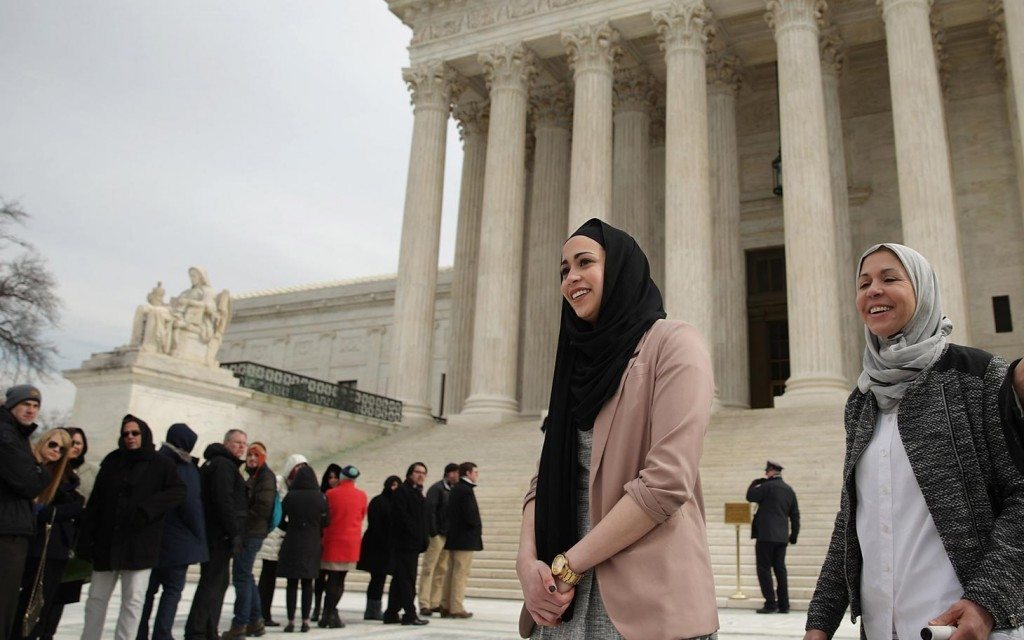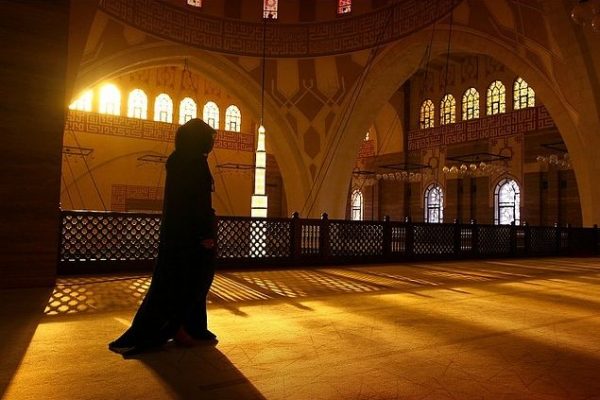The US Supreme Court has ruled in favour of a Muslim woman who was denied a job because of her hijab.
According to a BBC report, clothing company Abercrombie & Fitch Co refused to hire Samantha Elauf because her dress violated the clothing retailer’s “Look Policy” for sales staff.
Ms Elauf wore a hijab at her interview but did not say she was a Muslim.
But Justice Antonin Scalia said the retailer “at least suspected” that she wore a headscarf for religious reasons and she did not need to make a request.
US law requires that employers must “reasonably accommodate” an employee’s religious beliefs, as long as it does not provide an undue hardship to the business.
“I was a teenager who loved fashion and was eager to work for Abercrombie & Fitch,” said Ms Elauf in a statement after the court released its decision.
Ms Elauf was 17 years old when the discrimination occurred during a job interview at a shop in Tulsa, Oklahoma in 2008.
“Observance of my faith should not have prevented me from getting a job. I am glad that I stood up for my rights”, she said.
In an 8-1 verdict, the court ruled that Abercrombie had violated the 1964 Civil Rights Act, which bans discrimination based on religious beliefs and practices.
Groups representing Jews, Sikhs, Christian, gay, and lesbian rights organisations filed papers in court in solidarity with Ms Elauf, who told reporters she sought to protect the rights of people of all faiths at work.
In 2013 Abercrombie & Fitch Co settled with two American Muslim women who were targeted by management for their use of the hijab. Each woman was awarded $71,000 (£47,000).
Abercrombie & Fitch Co has since reversed its policy on headscarves.
Meanwhile, the Council on American-Islamic Relations (CAIR) welcomed the “historic” ruling.
CAIR National Executive Director Nihad Awad said: “We welcome this historic ruling in defense of religious freedom at a time when the American Muslim community is facing increased levels of Islamophobia.
“We applaud Samantha’s courage in standing up for her rights by contacting CAIR, which led to the EEOC lawsuit and to our amicus brief filed with the court.
CAIR’s Senior Staff Attorney William Burgess added: “The Supreme Court rightly underscored that a job applicant’s religious beliefs and practices must play no role in an employer’s hiring decision.
“A company engages in illegal employment discrimination when it decides not to hire someone out of a desire to avoid accommodating his or her religious needs, confirmed or not.”






